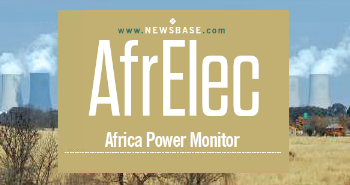Russian energy giants Gazprom and Rosatom offer to help end South Africa energy crisis
Russian energy companies Gazprom and Rosatom have said they are ready to collaborate with the South African government to help mitigate the ongoing energy crisis that has resulted in relentless power outages, or load shedding, being implemented across the country.
The two energy giants on October 17 hosted a joint session at the annual African Energy Week (AEW) in Cape Town titled ‘Powering Africa’s future through collaborative energy solutions,’ reports News24.
The conference was opened by Minister of Mineral Resources and Energy Gwede Mantashe. Representatives from the South African private equity firm Raise Africa Investments, the local EPC company Lesedi Nuclear Services, and Nelson Mandela University, among others, attended the session.
According to Ilya Rogachev, the Russian Ambassador to South Africa and Lesotho, Russia and South Africa shared an “unwavering friendship” throughout their intertwined histories, and load shedding presented an opportunity for both countries to share expertise within the energy field.
Dmitry Khandoga, head of the export department at Gazprom, emphasised that the experience of the Gazprom Group, Russia’s majority state-owned global gas exporter, can be used by African countries to benefit their population and economy, Centre for African Journalism (CAJ) News reported.
“Today’s session aims to showcase the opportunities of leading Russian energy industry sectors, namely nuclear and gas, for Africa. We are confident that the expertise of Russian companies can help fully unlock the energy potential of the region,” Khandoga said.
During a panel discussion with the African Energy Chamber (AEC) executive chairman NJ Ayuk, Khandoga reassured the conference participants that Gazprom was not interested in pumping resources out of Africa. “We are ready to share our solutions for the effective utilisation of natural gas,” he said.
The session became the next logical step after the Russia-Africa Summit held in Saint Petersburg this July, writes CAJ News. The attendees were introduced to state-of-the-art technologies including Small Modular Reactors (SMRs), Floating Nuclear Power Plants (FNPPs), and large-scale NPPs.
Rosatom, a state-owned nuclear power agency, has been operating FNPPs since 2019, said Kirill Komarov, first deputy CEO for corporate development and international business of Rosatom, adding that this technological solution can address Africa’s needs for stable and secure energy, considering the geographical specifics of the region.
Both the FNPPs and small land-based NPPs have a design life of 60 years. Earlier this year, Rosatom said in a presentation it could, in a matter of years, have three nuclear power ships ready to moor and supply power to South Africa, writes News24.
Rosatom’s international business division deputy head, Boris Arseev, told News24 that the company was open to collaborating with the South African government directly. Speaking after the panel discussion, Arseev said: “We have the technology, and we are ready to cooperate with any entity.”
Director for the Centre for High Resolution Transmission Electron Microscopy (CHRTEM) at Nelson Mandela University, Jan Neethling, said South Africa was in desperate need of nuclear energy to solve its ongoing energy crisis, and FNPPs and SMRs could be a solution.
“It is important to fix the old coal power plants and add additional nuclear energy. It is the best immediate solution. A floating reactor can also be fitted quite quickly,” Neethling said, adding that nuclear energy would also be a clean and sustainable energy solution.
South Africa has 14 coal-fired power plants, and one NPP, Koeberg, operated by the state-run power utility Eskom. Despite the intention to decommission several coal plants in line with South Africa’s current energy policy, the government is working to extend their life to address the ongoing energy crisis.
Unit 1 of Koeberg NPP is currently undergoing maintenance and is scheduled to come online in November. However, Unit 2 will then be taken offline, and Eskom also faces a race against time as its nuclear licence expires in July 2024, reports News24.
“There is a choice in South Africa to destroy the economy completely [with the ongoing energy crisis] or bring in nuclear energy to save South Africa,” Neethling was quoted by the news agency as saying.
The South African government has come under scrutiny in recent months over its stance on the Russia-Ukraine war and in the wake of the Lady R investigation related to a night-time loading of a Russian ship with an undisclosed cargo.
Nuclear power, despite its potential as a reliable and sustainable source of electricity, raises concerns about safety and waste management. During his keynote address at the AEW, Mantashe said the government should expand its nuclear capability and “should not write off nuclear as an energy source.”
On the margins of the conference, when asked about South Africa’s eagerness to collaborate with Russian companies, Mantashe told journalists the government was focused on addressing the ongoing energy crisis and not whether the company was Russian, says News24.



Follow us online